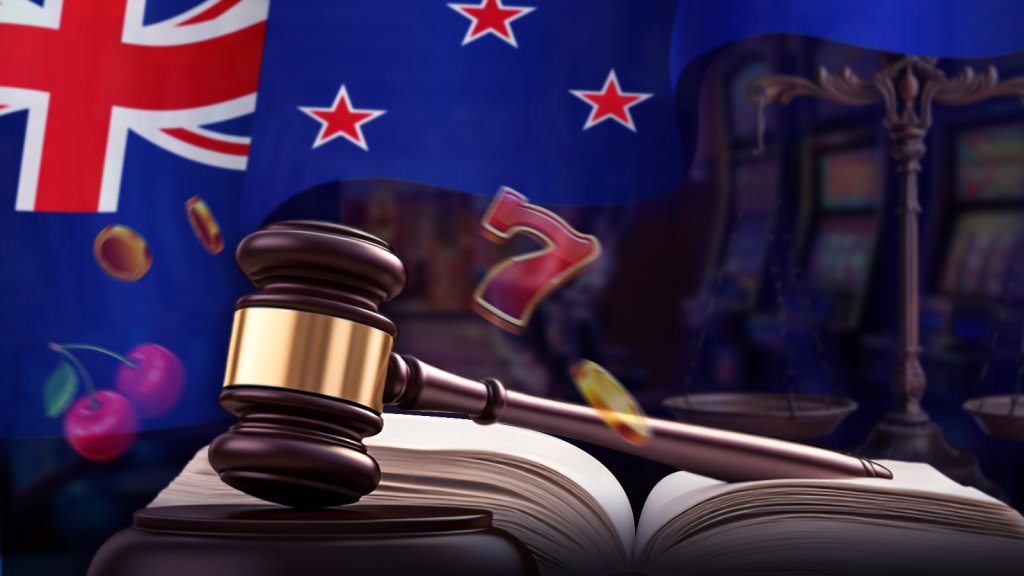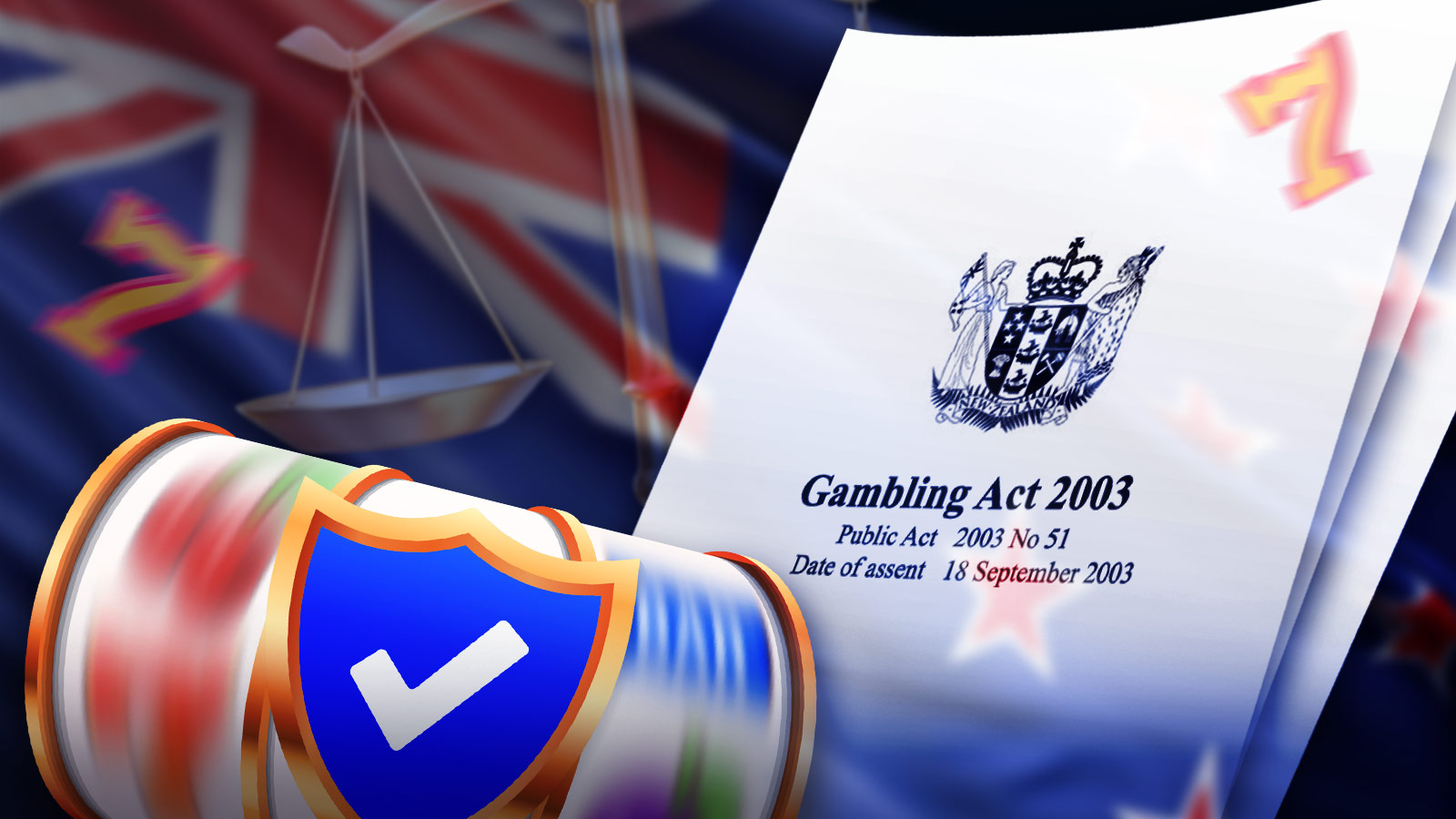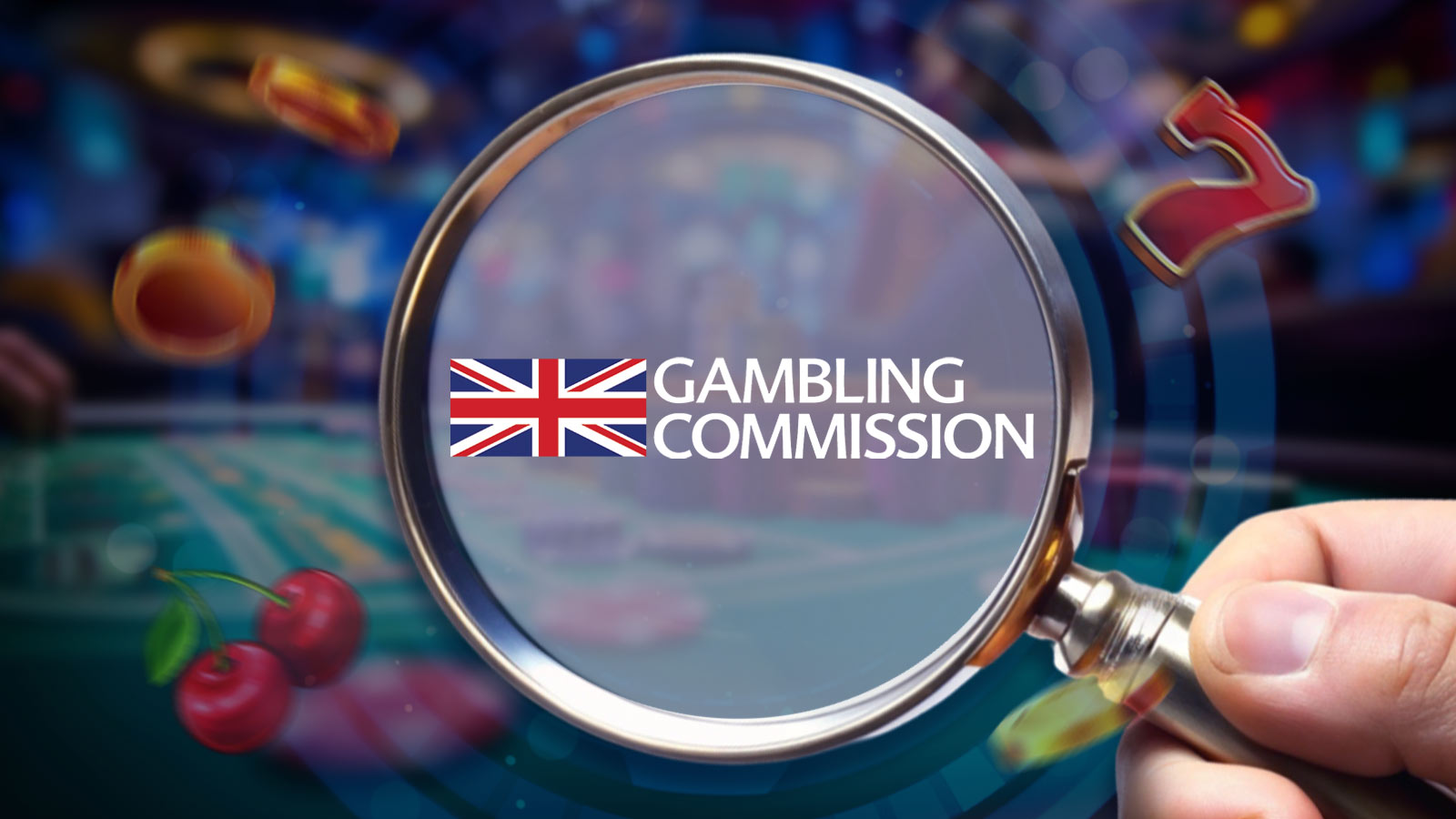
New Zealand Gambling Laws: Legal Casino Play & Restrictions 2026
All the information in this page was checked by:
Every piece of information we present is rigorously verified by our team of experts using multiple credible sources, ensuring the highest level of accuracy and reliability.
We have paid partnerships with the online casino operators featured on our site. We may also earn commissions when users click on certain links. However, these partnerships do not affect our reviews, recommendations, or analysis. We remain impartial and committed to delivering unbiased gambling content. For more details, visit our Advertiser Disclosure page.
The harsh truth about gambling laws in NZ is that many players don’t realize what’s legal and what could land them in trouble. Changes in online regulation and strict age limits mean the line between safe play and a breach isn’t always obvious. This guide breaks down every regulation, from licensing to advertising, and highlights how real enforcement impacts your choices.
- Gambling Act 2003
- The Gambling Commission
- How the NZ legislation protects minors
- Summary of rules and regulations
- Consulted sources
Gambling Act 2003

This is the primary law regulating the Kiwi industry and applies to all gambling activities:
- The organisation, management, and supervision of any gambling action;
- All land-based operators and use of equipment;
- Marketing activity in respect to chance games;
- The distribution of betting turnover, such as prizes, costs, specific grants;
- All related sales activities.
The Gambling Act solidified the Kiwi chance games legislation by establishing the New Zealand Gambling Commission and the Gambling Compliance Group within DIA (Department of Internal Affairs).
The Lotteries Commission regulates all NZ lotteries. The Gambling Act designates it as a Crown Entity.
Fun fact:
The Crown Entity Act ensures that governance is split from the management of the state. A Crown Entity is a part of the New Zealand state in charge of overseeing and providing accurate and helpful information to the managing aspects of the state.
Various governing authorities support the DIA’s requirement that all types of betting businesses benefit the community by returning a part of their profit, funding community programs, and providing or supporting services that aid in problem gambling.
Types of gambling
The Gambling Act categorised gaming activities into four types, defined as four primary classes:
Class 1
These cannot reward players with more than NZ$500, and their turnover cannot exceed this sum either.
To run a Class 1 gambling activity, you must return all turnover to winning players, except for costs.
You should also use all Net proceeds for authorised purposes if you are a society.
Important:
Kiwi vendors cannot receive any commission or remuneration in Class 1 or Class 2 activities.
Class 2
If prizes exceed NZ$500 but not NZ$5000, and if the turnover is between NZ$500 and NZ$25000, we recognise a Class 2.
Individuals are not allowed to conduct Class 2 activities, as opposed to Class 1 actions. However, the profits also need to be applied to authorised actions.
Class 2 activities must follow specific legislation, such as:
- Winners should not pay anything aside from the participation costs to claim their prizes.
- Ads or notices from the society need to show the organiser’s name and the authorised purposes for the activity.
- Kiwi players should notify the Secretary of Internal Affairs of any prize that remains unclaimed for three months after the results have been issued.
- Other rules are mentioned in Section 25 of the Act.
Tips
- To conduct Class 1 and Class 2 activities, no licence is required.
- Class 1 and Class 2 include small lotteries, housies, and any small societies whose actions abide by necessary rules and do not require special machinery.
Class 3
Any prizes that exceed NZ$5000 in one game session will define the society as a Class 3.
These are often large-scale lotteries, housies, instant games, casino evenings, which a society or corporation runs.
Like previous Classes, all outcomes must have purposes authorised by a legislative agency.
Recommendation:
To run Class 3 activities, the respective society is obligated to own an appropriate licence.
Thus, New Zealand’s best casinos inevitably hold a license approved by Kiwi authorities. We made sure to list and describe all NZ private venues so that Kiwi players can know what place most suits their taste for sure.
Class 4
This class implies using a gambling machine outside of a land-based casino. Only corporate societies can run it.
In other words, Class 4 takes place in pubs and clubs and implicates equipment such as pokie machines.
The proper authorities must also approve the declared reasons for their existence. They should imply raising money for the community.
Private gambling
One of the forms of gambling addressed that the Act mentions being regulated for players’ safety.
However, it’s not part of the official classes of gambling.
New Zealanders are allowed to play their favourite game of chance in private as long as they abide by the following rules:
- Admission to this activity should be free of charge;
- Everyone participating must have the same fair chance of winning;
- Winners must receive an equal part from the entire stake placed as a reward;
- Nobody outside the game should win anything;
- Nobody can deduct anything from a participant’s stake or winning;
- The person conducting the event should not be paid any remuneration as the primary focus is social entertainment;
- Only those who live at the address where the betting takes place should be involved in advertising it;
- The role of a “bank” player should be passed from one person to the next randomly or not but without any imposed conditions or charges.
It’s worth noting that, aside from private games, the act also recognises any activity approved under the Racing Industry Act of 2020.
Preliminary provisions
The Gambling Act mentions a few predefined conditions that apply to any activity connected to NZ betting, such as the following:
- The Act’s aim;
- Specific interpretation guidelines which help Kiwi readers understand the legislative terminology used;
- Defining gaming machines;
- Grounds on which the Secretary of Internal Affairs might ask for further information from vendors;
- Defining influence;
- A statement by which the Act binds the New Zealand Crown, thus asserting its power of legitimacy.
Among these, New Zealanders who seek to start a gambling activity may find the following details helpful.
Preventing corruption by defining influence
The Act sets strict rules about how influence should and should not exist to prevent corruption within Kiwi casino venues.
For instance, the Secretary of Internal Affairs or the Gambling Commission can determine who could be a significant interest in the ownership, management, or operation of a Kiwi casino. These are usually people such as:
- The director of a casino or an applicant for a casino licence;
- The chief executive, a senior manager, or their representatives;
- Someone who owns or will own shares controlling over 20% of shareholders’ voting rights in an NZ casino.
Tips:
For a complete list of conditions required by the 2003 Gambling Act in acknowledging influence in a casino, Kiwi players can consult Section 7 within the Act’s Part 1, which is available online.
When digging a little deeper, we noticed that there is a natural consequence that the Secretary of Internal Affairs must recognise someone as a significant influence for the casino: that person must first be recognised as a casino associate.
If this does not happen, it is called an affected transaction. The Secretary must address matters to the Gambling Commission for immediate action.
Prohibitions and authorisations
Kiwi laws prohibit two main types of gambling:
- Bookmaking;
- Remote interactive gambling.
The latter refers to online betting on casino sites or phone betting. This is primarily illegal in New Zealand.
However, offshore online betting platforms can be accessed and played on Kiwi territory if they comply with the Act.
Therefore, New Zealanders may play at offshore online casinos and sports betting apps but may not provide iGaming products of any kind, not even lottery tickets on the Internet.
Fun fact:
New Zealanders spent around NZ$381 million with offshore iGaming providers in the last two years.
Only two providers can sell such products online on NZ territory:
- The Lotteries Commission (Lotto)
- The Racing Industry Transition Agency (TAB).
The reason for these restrictions is keeping New Zealand players safe. To this end, our team explains precisely how to play safely so that gamblers know how to make decisions that guarantee safety and bring about winning opportunities.
Casino ban
While existing land-based casinos may renew their licenses, the 2003 Gambling Act prohibits any new casinos from entering the market.
The Act specifies that it aims to diminish casino betting opportunities
For instance, it is prohibited to increase the number of gaming machines without dropping the number of tables, player space, or any other game opportunities. This would change the original ratio.
Suppose these conditions cause Kiwi gambling services any losses. In that case, these will be the services’ responsibility, without any compensation from the Crown.
Credit ban
Be aware:
Gambling vendors are not allowed to loan money to anybody who intends to use that as a resource for betting purposes.
Breaking this specific law may force the person who loaned such money to pay a NZ$10,000 fine.
Only the Gambling Commission of New Zealand may approve of exceptional circumstances in which a casino operator may offer loans to gamblers.
We get how difficult it is to manage finances once a player develops an addiction, so we ensured our readers know how to avoid problem gambling in the first place. There, we explain exactly what this disorder implies and how Kiwi gamblers might prevent it.
Advertising gambling in New Zealand
New Zealand does not consider any promotion and advertising related to overseas online betting within the country territory.
Of course, for any activities related to betting, the few exceptions to this rule are:
- messages prioritising health;
- advertisements for the prevention, minimising, or treating of problem gambling;
- advertisement for related equipment which will only be distributed to buyers of gaming equipment;
- an ad in which the promotion is reasonably likely to induce the audience to gamble outside NZ territory.
Breaking this law will also bring about a fine of NZ$10,000.
However, legislation may be more lenient in this case, depending on NZ trading agreements and the Governor-General.
Non-cash prizes
Any prize that is not money must be officially declared by the game organiser to the Gambling Commission of New Zealand and comply with the Act norms.
Among these norms, a major one is informing all Kiwi gamblers of relevant prize characteristics and retail value from the moment they purchase a ticket or a place in the chance-game event.
The Act renders illegal activity any gambling event that offers prizes that do not comply with these conditions.
What is legal and what is not
We understand that legislation may be a little crowded with details, so here is a breakdown of the most critical points described above:
Legal gambling activities
- Any physical gambling that follows the Act rules for Classes 1, 2, 3, and 4;
- Online betting on casino sites, only if conducted by offshore providers;
- Betting arbitrage, as long as limits are respected.
- Products sold online by Lotteries Commission and the Racing Industry Transition Agency;
- Private gambling when it abides by the conditions presented in the Act;
- Promotional material related to the industry only if it emphasises health, safety, and gaming outside the territory of New Zealand.
Notable illegal gambling activities:
- Selling products online on NZ territory;
- Advertising gambling services on Kiwi territory outside the notable exceptions;
- Credits loaned by casinos or gambling companies to players who intend to use the money for gambling;
- Creating more betting opportunities by giving out new licenses or increasing the number of necessary machines;
- Using influence within a casino or the industry without Secretary approval.
Recommendation:
Kiwi gambling enthusiasts who want to learn more about a particular case should consult the Gambling Act 2003, as all these rules and regulations come with notable exceptions and procedures.
The Gambling Commission

The Gambling Commission is the go-to authority for licensing applications, appeals, and even gaming machines and other types of non-casino chance-gaming.
It also has powers as a Commission of Inquiry for any complaints or disputes related to the industry.
The Commission focuses on protecting Kiwi gamblers in several ways:
- Working closely with the Minister of Affairs to establish its functions and to administer the Gambling Act 2003;
- Engaging experts and receive evidence when determining and refreshing its procedure;
- Hearing complaints related to decisions made by the Department of Affairs;
- Keeping a close watch on the venues that have already been granted a licence ensures their continued compliance with legal norms.
The Commission can also take action whenever the Act is breached
- When a person is refused status as an associated person/significant influence;
- If the time for appeal against the refusal or revocation of associated person has expired;
- Before any appeal has been decided.
The Gambling Commission can also require a person who is refused status as an associated person or whose status is revoked to remove themselves as the significant influence in the respective casino.
How is gambling regulated?
The Department provides public education materials on this subject. It also ensures that all chance activities aside from the ones conducted within casinos adhere to the law.
How does the Gambling Commission intervene?
- The Gambling Commission mainly regulates casino betting.
- It can also verify how the DIA handles complaints or licensing decisions. Naturally, this occurs especially when it comes to Class 4 actions, as this Class lies beyond the Commission’s jurisdiction.
- The Commission sets the problem gambling standard and procedures.
Still, addiction services are regulated mainly by the NZ Ministry of Health.
The Ministry also funds such services as the Gambling Group. It implements help strategies like the Preventing and Minimising Gambling Harm Service and Strategic Plan.
Aside from the Gambling Act 2003, a few other NZ laws take effect when it comes to:
- Offshore online betting on casino sites: The Racing Industry Act 2020;
- Defining a key person within the 2003 Act: The Gambling Amendment Act 2005;
- Several minimal amendments to Classes, harm prevention, and others: The Gambling Amendment Act 2015 and The 2015 Gambling Amendment Act No. 2.
Important:
Kiwi gamblers are advised to play according to Gambling Act of 2003 rules, as this is the leading law controlling the industry.
How is offshore gambling regulated?
The Racing Industry Act of 2020 (RIA) rules over Kiwi racing and betting and offshore online betting on casino sites.
Offshore operators must fulfil a standard of quality and trustworthiness given by
- Appropriate licensing from renowned authorities like the UKGC or MGA;
- Secure transactions via payment services that are popular in New Zealand, such as POLi, PayPal, Paysafecard, etc.;
- Games and software created by recognised industry names like Betsoft, Microgaming, Evolution Gaming, QuickSpin, etc.;
- Fast withdrawal time, safe KYC procedures, and more.
Offshore betting platforms must
- Never use racing and sporting details unless they have permission from the relevant racing code and national sporting authority;
- Pay the obligatory information and use fee, among other Racing Industry Act of 2020 (RIA) conditions, before they use NZ racing and sporting information;
- Pay a POC charge according to the gross betting revenue of the respective operator.
Tips:
- Paid Outside Closing (POC) charges are fees you must pay after the moment of closing a loan, such as appraisal fees.
- Offshore operators must only pay a POC charge if the revenue is less than NZ$60 000.
How the NZ legislation protects minors

The NZ Ministry of Health and the Department of Internal Affairs have taken this matter into hand by coordinating problem gambling services, like:
- PGF Services;
- Woodlands Trust New Zealand;
- Problem Gambling Foundation of New Zealand;
- Choice not chance;
- Smart Recovery, and others.
The New Zealand market abounds in gambling harm control institutions, so we made a list with the most notable ones and their services, alongside details to help concerned Kiwi players get in touch.
Children exposed to family members have much to lose as they experience:
- Breakdowns of essential relationships;
- Child neglect and family violence;
- Stress, depression or suicide rates skyrocket;
- Loss of home and security;
- High potential for substance abuse or becoming likely victims of crime.
Therefore, New Zealand seems to treat this issue holistically. Instead of just focusing on keeping children from developing an addiction to games of chance, Kiwi authorities target the family as a group in need of protection.
Important:
This approach is supported by a Salvation Army Food Bank research study from 2004 stating that more than 12-14% of people in need of their services were problem gamblers.
What to do
However, many concerned Kiwi parents would like the specifics of keeping children safe from developing a gambling addiction. Our complete guide explains how chance games can create a habit in children and what trusted resources and strategies you might employ to make sure it never happens.
Aside from public education, adverts restrictions, and an overall strict regime, New Zealand adds one extra layer to shield children from problem gambling: age restrictions and their respective fines.
Keep on reading to know exactly how they work!
Legal gambling age in New Zealand
The legal gambling age in NZ is decided according to risk rates of chance games, and so is the fine for playing under-age:
- Fast-draw lottery tickets, scratch-cards, instant Kiwi tickets are illegal to buy if you are under 18 years old, and it is also unlawful for anybody to sell them to you;
- Betting on Racing Industry Transition Agency (TAB) sporting events is also illegal until you are 18 years old, and it can cost you NZ$500 if you are caught breaking the law;
- Anyone buying a TAB ticket on behalf of a minor will be fined up to NZ$1000;
- No Class 4 betting venues (pubs or clubs with pokie machines) will allow access to people under 18;
- Nobody under 20 years old can enter a casino, and fines also go up to NZ$500;
- Many Kiwi casinos will ban underage people from entering again for two years, regardless of whether they meanwhile turn of age.
Tips:
Lotto, Bulls Eye, Play 3, and Keno allow people of any age to play. However, if you are a minor and win over NZ$1000, you need a written Acknowledgement from a parent or guardian to claim your prize.
Summary of rules and regulations
We used our player experience and our professional insight to study the gambling scene of New Zealand and present to our Kiwi readers what is relevant.
Here is a list of rules to remember:
- The Gambling Act defines four significant classes of gambling to incorporate significant activities;
- Private play is legal as long as it complies with the Act;
- The Gambling Act enables the Gambling Commission of New Zealand to take action regarding licence renewal, disputes with the DIA, and more;
- New Zealand is currently restricting casino betting opportunities, so while current casinos can renew licences, the state can give no new land-based casino licences;
- Online gambling is illegal in NZ. However, New Zealanders may gamble on online platforms as long as these are offshore;
- Offshore gaming platforms are regulated by the Racing Industry Act of 2020 (RIA).
Make sure to check our expert review of your favourite online gambling website before you try it out, so you know with certainty that you play legally and smartly.

